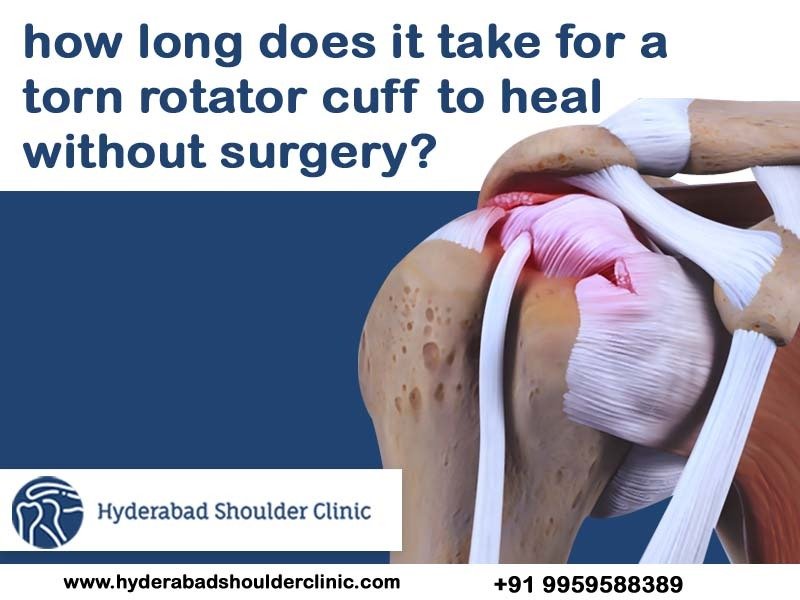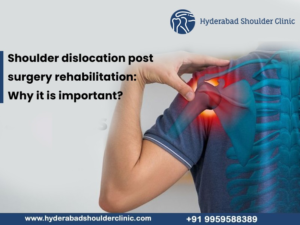The shoulder joints do many things for you. They help you reach something high on the shelf and play games like tennis and volleyball. Though it is one of the complicated joints in your body, it looks very simple.
The rotator cuff is the bigger part of your shoulder joint, made up of muscles and tendons that hold the ball-shaped bone of your upper arm bone (humerus) in the shoulder socket. It guards your shoulder joint and supports your arms to move in different directions over your head. The rotator cuff plays a dominant role, especially in people who are playing sports like baseball, swimming, and tennis.
The important muscles of the rotator cuff include Supraspinatus, Infraspinatus, Teres Minor and Subscapularis. If any of the muscles tend to damage, it is said to be a rotator cuff tear.
Causes and Risk Factors of Rotator Cuff Tear
A rotator cuff tear can happen to people of any age and gender in two ways, one is an injury to your shoulder joint, and the other is wearing down of the tendons in the joint over time.
A rotator cuff tear due to wear and tear of the tendons is called a degenerative tear. The risk of this condition increases with:

- Jobs involving too much movement of your shoulders.
- As you get older, the blood supply reduces to the rotator cuff area and tends to develop small tears that are hard to repair.
- Overgrowth of bone in the shoulder called bone spurs can wear away the tissues in the rotator cuff and causes tears. This is more often seen in older age people.
- People above 60 years are more likely to experience rotator cuff tears.
- Doctors think that rotator cuff tears might run in families as a genetic disorder.
- Athletes who play certain sports like baseball, tennis, swimming, and weightlifting stress their rotator cuff more and put them at more risk of tears.
Symptoms of Rotator Cuff Tear
Rotator cuff tear sometimes goes symptomless until it becomes severe. However, in some cases, the following signs & symptoms might appear:
- Difficulty in raising arms.
- Pain if you move your arm in a particular direction or lie down on it
- Weakness in the affected shoulder
- Unable to lift objects as you do normally
- Clicking or popping sound from the joint when you move your arm
Consult a shoulder expert or an orthopaedic doctor if you experience any of these signs. If you neglect a torn rotator cuff, it leads to more severe problems over time. You may end up having a frozen shoulder or arthritis, which are complicated to treat.
Can a Torn Rotator Cuff Heal On Its Own Without Surgery?

Yes, some rotator cuff tears can heal without surgery. Many of us think an orthopaedic doctor mostly suggests surgery for a torn rotator cuff. It is not a fact, and several treatments are also available to treat shoulder pain and other problems due to damaged rotator cuff without surgery.
Surgery for rotator cuff is recommended:
- When the tissues or tendons completely separated from the bone
- To remove bone pieces stuck in your shoulder joint
- To trim small areas of bone or tissue to provide space for the tendon to move
- When non-surgical treatments fail to improve pain and restore the mobility of the shoulder
80% of patients with rotator cuff tear get pain relief and improved functions of shoulder joint shoulder through conservative treatments. Athletes who want to rejoin their practice with a complete tendon tear mostly undergo surgery.
How long does it take for a torn rotator cuff to heal without surgery?
In many cases, the torn rotator cuff can be treated with the help of conventional methods like anti-inflammatory medication, steroid injections, & physical therapy. However, if it is a complete tear(90% of the tendon is torn), i.e., no fibres or tissues attached to the bone, then the rotator cuff tear might not heal independently.

Usually, mild rotator cuff tears or sprains will heal within four weeks. In other severe cases, the recovery might take 4 to 6 months or even longer based on several factors such as the severity of the tear, age, and other health complications. Probably people can resume their activities like playing sports after six months. However, a complete recovery from a rotator cuff tear might take up to a year in some cases.
There is no need to reconnect a partially torn tissue to the bone to regain its full range of motion. Instead, physical therapy is an effective process to retrain your muscles and bones so that your shoulder can function without pain or further damage to the rotator cuff.
Even the pain due to thick rotator cuff tears can also be reduced through conventional treatment and strengthening exercises that make your surrounding muscles strong. Considering your age and lifestyle, physical therapy is a better option, even for the complete recovery of rotator cuff tear than surgery.
If you have chronic shoulder pain or cannot move your shoulder normally, visit an orthopaedic doctor as soon as possible. Dr Chandra Sekhar Rao, one of the best shoulder specialists in Hyderabad, has more than fifteen years of experience in diagnosing and treating various shoulder problems along with rotator cuff tears, including frozen shoulder, shoulder arthritis, shoulder fractures, shoulder instability, bursitis, tendonitis and many more. Call +91 99595 88389 to book an appointment or know different conventional treatment options to eliminate shoulder pain.





